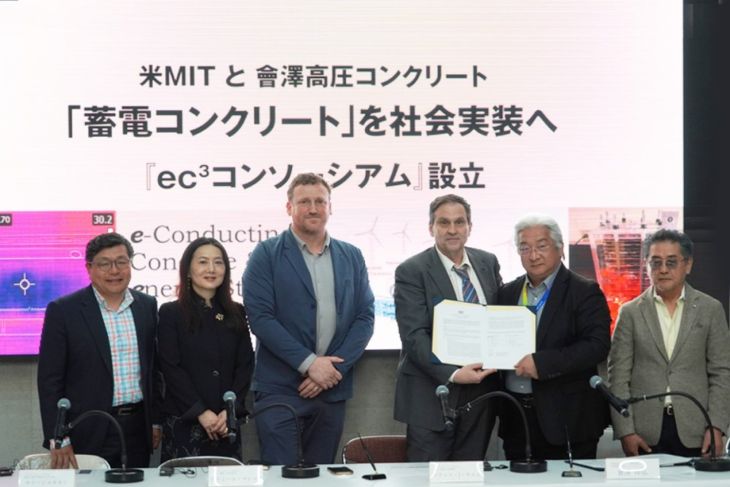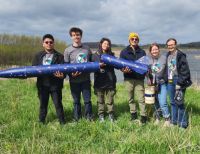The MIT Electron-conductive Cement-based Materials Hub (EC^3 Hub), an outgrowth of the MIT Concrete Sustainability Hub (CSHub), has been established by a five-year sponsored research agreement with the Aizawa Concrete Corp. In particular, the EC^3 Hub will investigate the infrastructure applications of multifunctional concrete — concrete having capacities beyond serving as a structural element, such as functioning as a “battery” for renewable energy.
Enabled by the MIT Industrial Liaison Program, the newly formed EC^3 Hub represents a large industry-academia collaboration between the MIT CSHub, researchers across MIT, and a Japanese industry consortium led by Aizawa Concrete, a leader in the more sustainable development of concrete structures, which is funding the effort.
Under this agreement, the EC^3 Hub will focus on two key areas of research: developing self-heating pavement systems and energy storage solutions for sustainable infrastructure systems. “It is an honor for Aizawa Concrete to be associated with the scaling up of this transformational technology from MIT labs to the industrial scale,” says Aizawa Concrete CEO Yoshihiro Aizawa. “This is a project we believe will have a fundamental impact not only on the decarbonization of the industry, but on our societies at large.”
By running current through carbon black-doped concrete pavements, the EC^3 Hub’s technology could allow cities and municipalities to de-ice road and sidewalk surfaces at scale, improving safety for drivers and pedestrians in icy conditions. The potential for concrete to store energy from renewable sources — a topic widely covered by news outlets — could allow concrete to serve as a “battery” for technologies such as solar, wind, and tidal power generation, which cannot produce a consistent amount of energy (for example, when a cloudy day inhibits a solar panel’s output). Due to the scarcity of the ingredients used in many batteries, such as lithium-ion cells, this technology offers an alternative for renewable energy storage at scale.















